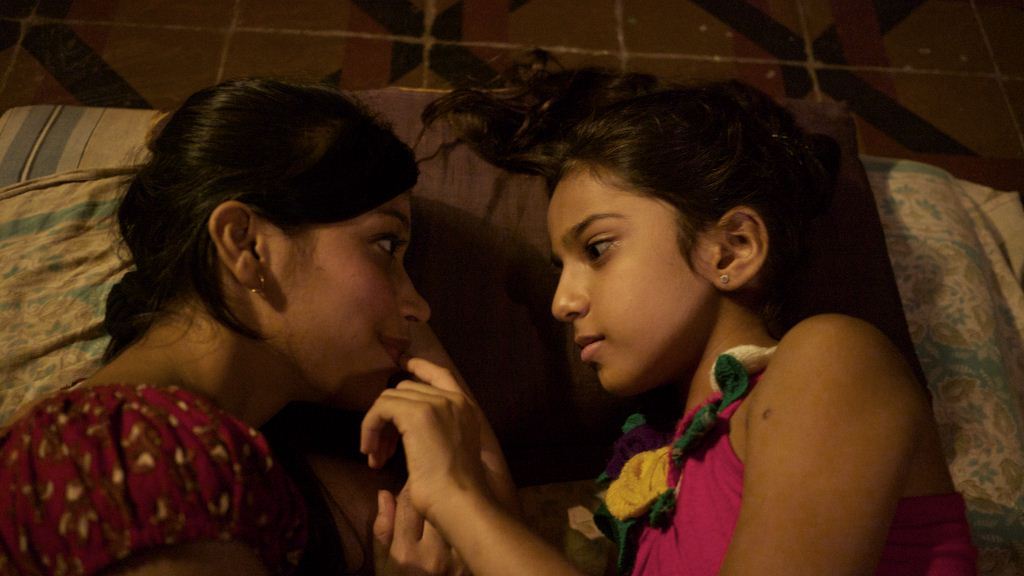Busan Boosts Indian Indie Cinema
Gulnaaz Ansari and Esha Amlani in Partho Sen-Gupta's Sunrise

Now in its 19th year, the Busan International Film Festival (BIFF), is one of Asia's most important and prestigious film festivals, with a highly-prized and committed film market that focuses on the Asian film industry. The festival stands on par with the top international film festivals in the world viz. Cannes, Berlin, Venice and Toronto. 2014 BIFF runs from October 2 to 11.
While most of the other top film festivals select around three to four Indian films every year, Busan goes out of its way to boost new Indian cinema. It selects a bumper crop of close to a dozen films each year. Many of them are brand new and from different genres, although the independent film is highlighted.
BIFF will screen 314 films from 79 countries with 98 world premieres and 36 international premieres. This year noted actress Suhasini Mani Ratnam is on the Busan jury of the New Currents Asian Film Competition. Headed by Iranian filmmaker Asghar Farhadi (director of the Oscar-winning A Separation), the other jury members include Korean director Bong Joon-ho (The Host, Snowpiercer), French philosopher Jacques Rancière and film studies professor Dina Iordanova, originally from Bulgaria whose work base now is in the UK and Canada..
The sole competitive section, the highly prized New Currents, this year features 12 world premieres of first and second films from around the world. The Indian director Partho Sengupta’s Sunrise, in Marathi, features in this section. The film is a psychological thriller on parental grief over a missing girl child.
The eleven films featured in different sections in 2014 BIFF are:
A Window on Asian Cinema
Vishal Bhardwaj's Haider
Homi Adajania's Finding Fanny
Shonali Bose's Margarita, With A Straw
Adityavikram Sengupta's Labour of Love
Vijay Milton's Goli Soda (Tamil)
Siddharth Siva's Zahir (Malayalam)
New Currents (Competition)
Partho Sen-Gupta's Sunrise
Open Cinema
Omung Kumar's Mary Kom
Documentary Competition
Gautam Sonti and Usha Rao's Our Metropolis
Documentary Showcase
Balaka Ghosh's Foot Prints in the Desert
Short Film Showcase
Gitanjali Rao's True Love Story
Running in conjunction with BIFF is The Asian Project Market (APM), the largest investment and co-production market in Asia. This year it has selected 30 titles from 20 countries. They cover works by both new and established names in Asian cinema and involving collaborative efforts from regions reputed for their film industry such as France and the U.S. to the more obscure such as Cambodia, Serbia, Bangladesh and Sri Lanka .
Projects by globally esteemed auteurs include Fowl, a Philippines-France-Germany joint venture by Cannes-winning auteur Brillante Ma Mendoza, and No Land's Man, a Bangladesh-India-US-Australia film by Mostofa Sarwar Farooki, whose previous work Television closed the 2012 edition of BIFF and Vimukthi Jayasundara’s Hair Of The Dog That Bit You.
New projects by talented producers have also made the cut, including Clair-obscur (Turkey-France) produced by Titus Kreyenberg and Marianne Slot (known for producing Lars von Trier’s Antichrist, Melancholiaand Nymphomaniac). Also included in the selection is the Palestinian project The Flag by producer Hany Abu-Assad, the Cannes-winning director of the acclaimed film, Omar.
Emerging names in Korean cinema will also present their new work: Yeon Sang-Ho, the 2012 BIFF triple-crown-winner of The King of Pigs, will take part in APM with The Family Ground (working title), while July Jung, whose debut film A Girl at My Door featured in Cannes' Un Certain Regard this year, will showcase Dora (working title).
The 19th BIFF will open with Doze Chen-Zer Niu’s Taiwanese film Paradise In Service and close with Lee Po-Cheung’s Gangster Pay Day (Hong Kong, China)
The Busan International Film Festival (previously Pusan International Film Festival), is held annually in Haeundae-gu, Busan, South Korea. Its first edition took place over 13 to 21 September 1996 and had the distinction of being Korea’s first international film festival.
BIFF’s focus is one of constant discovery, introducing new films and first-time directors, essentially from Asian countries. What distinguishes this festival is its appeal to young people. It displays a fine balance between a large youthful audience and its efforts to promote young talent.
Today, BIFF is held in a sprawling and artistically appealing space, that is virtually a film city. In 2011, over its 16th edition, BIFF moved to a new permanent home, the Busan Cinema Center in Centum City, a close to USD 150 million structure designed by the Austria-based architecture collective Coop Himmelblau. It includes a 4,000-seat outdoor theatre; four indoor screens under an LED-covered roof; media centre; archive space; and conference rooms; allowing the festival to include industry forums and educational activities. The adjacent long beach front also becomes an informal and colourful festival celebration space. The city takes great pride in BIFF, reputed to be contributing more than half of its overall funding.



